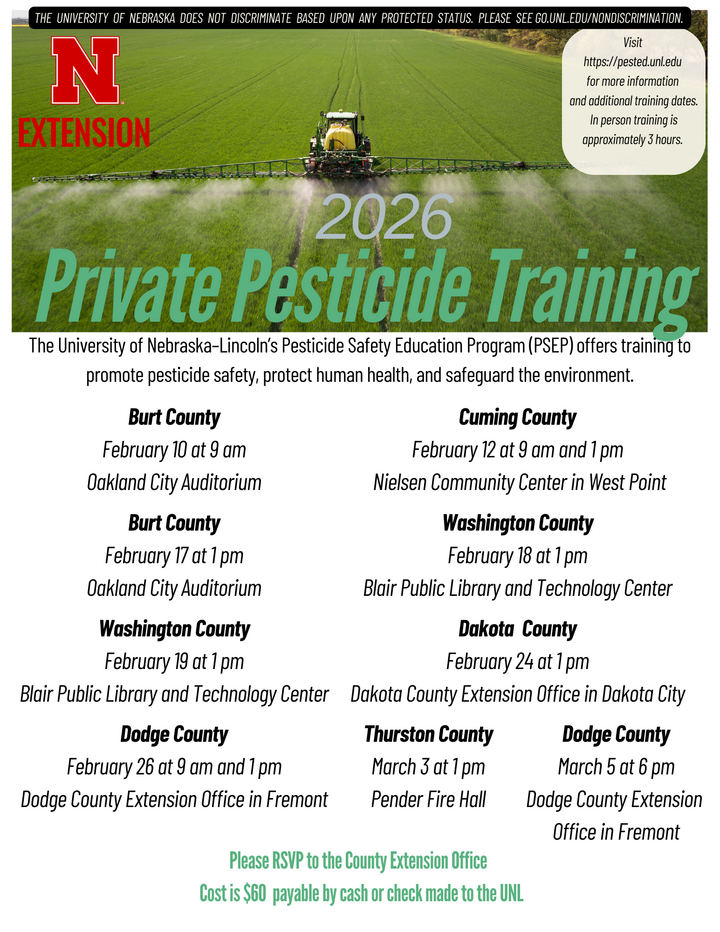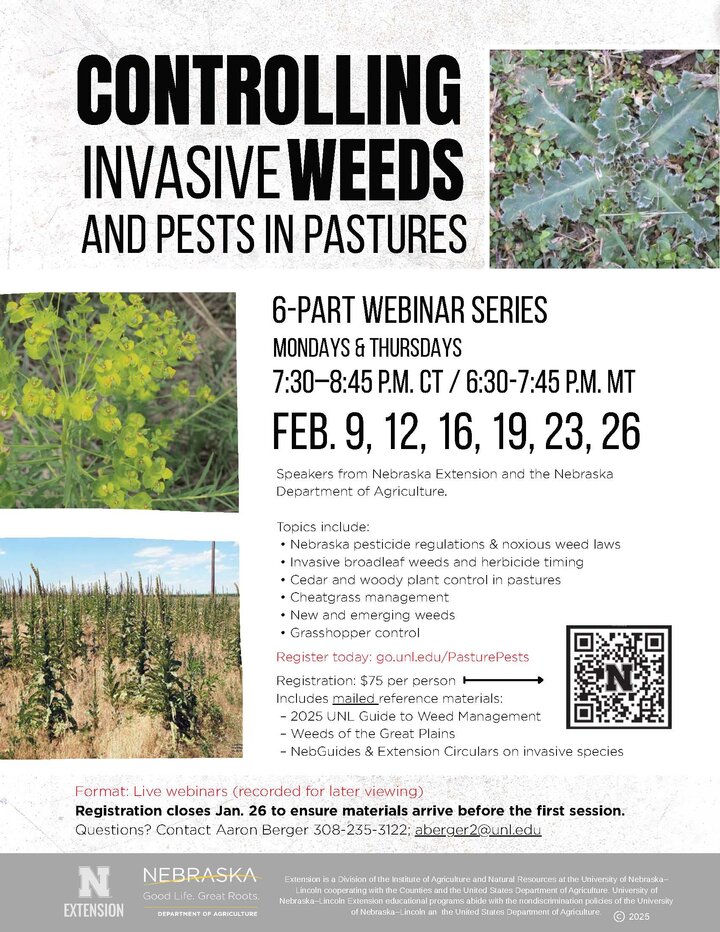Feature stories/news
Upcoming Events!!


NEWS
2026 Pesticide Training

4-H Online is now open for youth and volunteer enrollment for the 2025-2026 program year!


A webinars series will be held over 3 weeks to cover invasive pasture weeds and pests, including common mullein, leafy spurge, cheatgrass, cedars, grasshoppers, and new weeds to watch. Webinars will be recorded.
Registration is due by Jan. 26th at https//go.unl.edu/PasturePests. Materials will be mailed to participants. The 2025 UNL Guide to Weed Management, Weeds of the Great Plains (colored hard cover), and a booklet of NebGuides and Extension Circulars focused on invasive species. Cost is $75/participant.


Dakota - Thurston County Fair 2025 - "It's a Family Affair"
July 27 - August 3, 2025
Main Events:
- Thursday - "Tri-State Shootout" Tractor Pull
- Friday - Nebraska Sanctioned Figure 8 Racing
- Saturday - Extreme Bull Riding by Double S Bull Riding
There is many more exciting events from the Little Prince and Princess Contest to livestock shows! So don't miss out on all the fun!
June 5, 2025 - Adventure Day Camp - Neligh Park, West Point, NE,
Contact your local Extension Office for details. 402-385-6041!
June Deadlines
- June 1, 2025 - Horse State and County ID's DUE
- June 15, 2025 - All Livestock Affidavits are DUE
- June 15, 2025 - State Fair Beef, Sheep, Swine, and Goat DNA and Nominations DUE
- June 15, 2025 - 4-H Enrollment ABSOLUTE DEADLINE
- June 19-20 Premier Communication Event at University of Nebraska-Lincoln
- June 17-18 PASE/Life Challenge @University of Nebraska-Lincoln
NEW Volunteer Orientation!
Nebraska 4-H has launched a new volunteer orientation! This online training serves as an introduction to the 4-H Youth Development program in Nebraska and covers a few essential topics for volunteers. While the orientation is required for new volunteers and those going through the re-screening process, any interested individuals, including current and prospective volunteers, are welcome to complete the course.
Learn more at 4h.unl.edu/volunteer-orientation.
Get ready for the 2025 Dakota/Thurston County Fair! It will be here before you know it! See the deadlines above for the month of June! All nominations must be in by June 15!

Thurston County Courthouse Will be Closed on these Holidays
(Thurston County Extension will be Closed)






